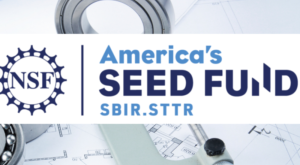For those of you interested in NSF applications, note that there have been some significant changes in the last year. We previously reported that NSF no longer has hard deadlines but instead allows applications to be submitted virtually at anytime. In place of deadlines, they have instituted ‘close of window’ dates where they demarcate the end of a particular submission period. There are short periods at the end of submission windows for a few hours where applications will not be accepted; but essentially an application can be submitted any day of the year.
In the last year, they have also implemented a “project pitch” requirement, where any applicant is first required to submit a short (1500 word) summary of their technology, objectives, market, and team. This project pitch can be uploaded here: https://nsfgov.secure.force.com/sbir/. We have a template available for you to prepare drafts and ask our thoughts. Once you submit the project pitch, the NSF staff will reply to you in two or three weeks with a reply. Either they will decline your pitch or “invite” you to apply. Only those who have been invited to apply can submit a full Phase I SBIR/STTR. Note too, that instead of two deadlines a year, there are four quarterly submission windows:
These windows close on the first Thursday after the end of the quarters at the first of March, June, September, and December
Another aspect of these changes is when the reviews will occur and how quickly you can find out about funding. This is an excellent question to ask the program officer who reaches out with an invitation to apply. All program officers will start reviews after the close of a submission window, but some of them have reviews more often and potentially monthly. This likely will have the effect of getting funding to you in a much more timely fashion.
More recently, the NSF has announced that the Phase I award amount has increased to $256,000; up from the previous $225,000. We recommend you keep this budget limit in mind when preparing your proposal.
Additionally, there are new topics and topic changes. Notably, Pharmaceutical Technologies is a new area of interest for NSF; but they will not fund clinical trials.
If you are interested in pursuing NSF SBIR/STTR funding, be sure to take advantage of CTC’s SBIR/STTR Assistance Micro-grant to get you on the path to a successful Phase I application!
Watch a recorded webinar about the Project Pitch Pilot or a recorded webinar about How to Apply.

